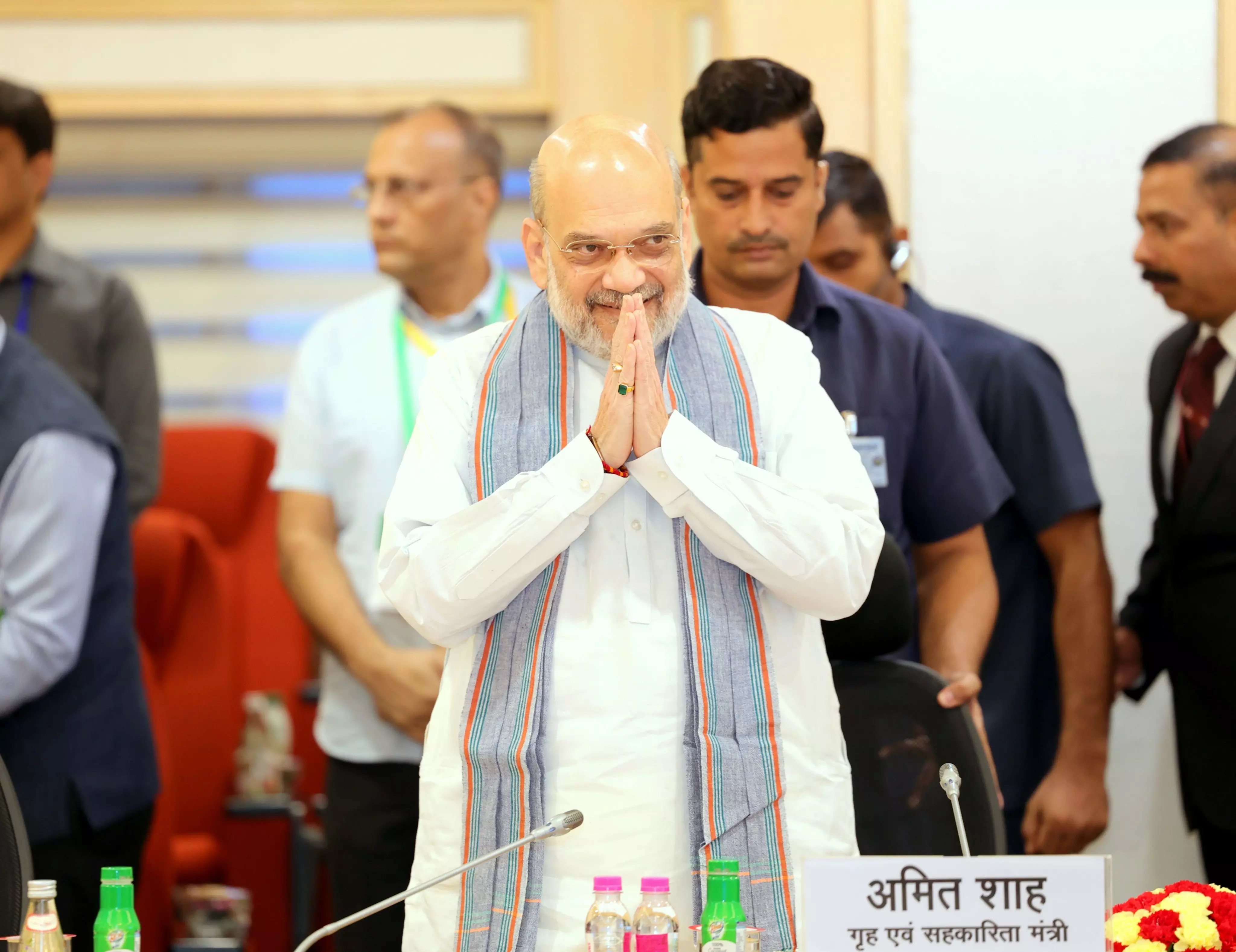Shah asserts no boundary for terrorism
The home minister said the Central government's anti-terror probe agency National Investigation Agency utilises UAPA in all terror cases and as a result so far out of 632 cases filed by it, chargesheets has been filed in 498 cases, and convictions in almost 95 per cent

New Delhi: Acknowledging that law and order was a state subject, Union home minister Amit Shah on Thursday said there should be proper coordination between state and Central intelligence networks, and added: “Terrorism doesn't have any territorial boundary, and so all security agencies -- Central and states --must work in close coordination, chalk out joint strategies and share intelligence.”
Addressing the two-day “Anti-Terror Conference 2024”, that was organised by the NIA, he announced that a National Counter Terrorism Policy and strategy to fight terrorism and their ecosystem will be unveiled soon.
Mr Shah also said that the security forces have to train young officers and use technology to combat terrorism as the states have their boundaries but the terror and terrorists have no boundaries. “After Narendra Modi became Prime Minister in 2014, the country has been moving forward with a solid strategy against terrorism. We are committed to eradicating terrorism,” he said.
Highlighting the achievements of the Modi government against terrorism since 2014, during which terror incidents have come down by 70 per cent in comparison to the earlier decade, Mr Shah said now the shelf life of terrorists has decreased from two years to a few days.
He said due to joint efforts of state and Central governments, violence has been controlled to a great extent in J&K, Naxal-affected areas and the Northeast in the last 10 years.
Shah asked representatives of state police forces at the conference, most of whom are DGP-rank officers, to invoke anti-terror law Unlawful Activities (Prevention) Act wherever required.
Mr Shah said states have their own geographical and constitutional limitations, while terrorism and terrorists have no boundaries. He said that terrorists engage in both international and inter-state conspiracies, and to develop an effective strategy against them, we need to build a strong system through conferences like this. “This will help curb activities like terrorism, narcotics, and hawala operations, which threaten the country’s borders and economy”, he said.
The home minister said the Central government's anti-terror probe agency National Investigation Agency utilises UAPA in all terror cases and as a result so far out of 632 cases filed by it, chargesheets has been filed in 498 cases, and convictions in almost 95 per cent.
He asked the police chiefs of the states to establish a synergy down to the level of police stations and set up a strong ecosystem against terrorism. The minister underlined the need to legally strengthen the hands of the institutions fighting it. He said, therefore, the jurisdiction of the NIA has been increased by amending the NIA Act and now it can probe terror cases abroad too.
By amending the UAPA, the authorities now have the power to confiscate properties and declare outfits and individuals as terrorists, he noted.
The home minister said that a 25-point integrated plan has been prepared to stop the funding of terrorism, including jihadi terror and left-wing Extremism.
Noting that the scope of the Multi-Agency Centre (MAC), an intelligence gathering mechanism, was expanded, and the standard operative procedures (SOPs) were created under it to monitor cyber security, narco terror and emerging radical hotspots, which has led to success in preventing many crimes before they happen.
The two-day anti-terror conference is expected to further enhance coordination among agencies to strengthen India's security bastion.
The annual conference has over the years emerged as a meeting point for operational forces; technical, legal and forensic experts and agencies engaged in counter terrorism for deliberations on issues impacting national security and threats emerging out of terrorism.
The home minister said that to win the fight against terror, a “whole of government approach” was essential, and we need to create an integrated, actionable system. He emphasised that to address challenges such as terror financing and new threats like crypto currencies; a coordinated approach must be adapted from police stations at the state level to the offices of the DGP. Mr Shah said the time has come to shift from a “need to know” approach to a “duty to share” approach.
The conference is being attended by senior police officers from states/UTs, officers from Central agencies and departments dealing with issues related to counter-terrorism and experts from related fields such as law, forensics and technology.
